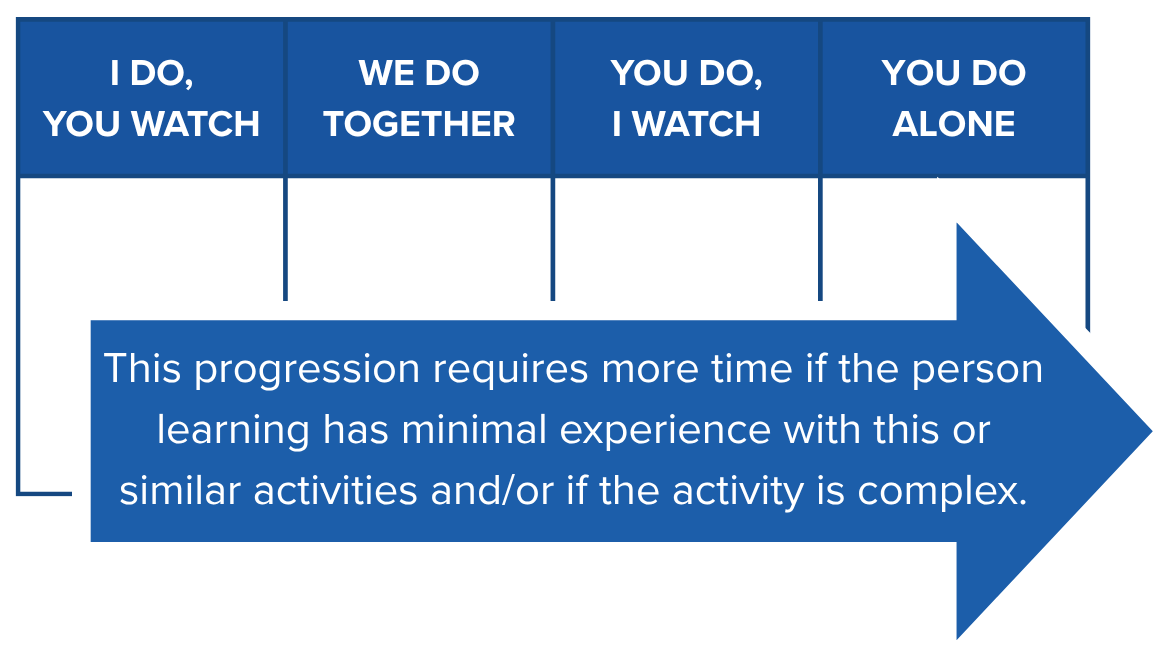Not a Knot - passing skills to another person
/I was teaching someone relatively new to abseiling. Gina (not her real name) was quickly building skills and was hugely enthusiastic. I’d delegated the rigging of the ropes on a cliff she’d never worked on before. As I walked back along her ropes, I spotted a knot that was not. It was sloppily tied and not fit for the purpose she’d used it for. Abseiling is very safe if all the gear is properly used, but get it wrong and the consequences can be spectacularly fatal.
A group was about to join us for the day, so I quickly called Gina over, discussed the problem and demonstrated a better knot to tie. After the group left we did a couple of practice rigs to expand her knowledge about rigging. It would have been easy for it to be awkward, or to feel like micro management, but we were following an explicit skill transfer process:
We had discussed and used the process for other skills and were moving from We Do Together, to You Do, I Watch. The process encourages demonstration, clarification, and thinking. It’s a great way to hand your skill set to another person. If they know what you expect from them at each stage and what they can expect from you, it takes much of the potential stress and clunkiness out of learning.
A couple of weeks later, Gina rigged all the ropes, and inspected them herself while I laid out equipment for the group that was arriving. We both knew that she had developed enough skill and judgement to set the ropes. She also knew that I would answer questions and/or assist if she found herself not sure what to do. We’d taken the time to build mutual trust in each other in relation to that activity. Next week, we’d start the process again on a more complex skill set.


